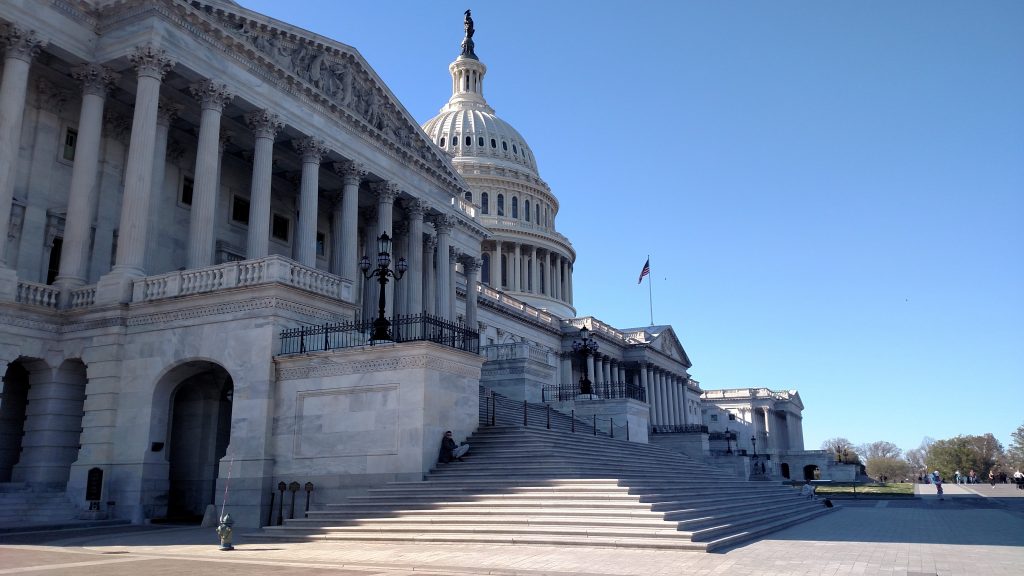
The U.S. Constitution already restricts who is eligible to be elected to Congress. In order to serve in the House of Representatives, one must be at least 25 years of age, while the Senate’s minimum age for membership is 30 years.
Some have suggested that term limits are preferable because age does not necessarily predict views. After all, Bernie Sanders and Mitch McConnell are both 81 years old but could not be more different in their political beliefs. That said, it is difficult to imagine members of Congress limiting how long they can serve. In order to enact term limits, every single member of Congress, young and old, would need to agree to limit their ability to run as fate allows. That is not going to happen.
Age limits are not about cognitive ability, as many older members of Congress have much mental vigor. Rather, such restrictions would empower voters to decide who represents them. Incumbents, with their name recognition and reserves of campaign money, have a strong advantage over any challengers. In the 2018 Senate election in California, incumbent Dianne Feinstein’s democratic opponent, Kevin de León, lost by almost one million votes. A sporadically vacant Senate seat has resulted due to Feinstein’s poor health. She will be 90 years old in a few weeks. With age limits, Kevin de León might have won that Senate seat. In any case, California would know they have an effective senator.
One out of three U.S. senators is 70 years of age or older. Some argue that these individuals could always lose a primary or general election, but it is often not the case. In order to ensure fair competition in the marketplace of ideas, it is imperative that age restrictions be put in place. If members of congress will not vote on this then Americans could push for a constitutional amendment.
Polls have shown that Americans support age restrictions on members of Congress by a nearly 1 to 3 margin. It is rare for 75% of Americans to agree on anything in today’s polarizing political climate. Voters are in agreement. The passage of maximum age restrictions would prevent senators in “safe” seats from waiting until their death to give up their congressional seat and allow the next generation of leaders to stand up and advocate for change. If the maximum age of eligibility to be sworn into congress were set to 70 years old we would still in theory have members of congress in their mid-70s. The idea that our elected representatives deserve to hold on to power until death is one fueled by the egos of the people we choose to represent us.
The Democratic senator from the state of Washington, Patty Murray, has been in congress since 1993. It has been 30 years since the people of Washington have had an opportunity to choose who represents them. At 72 years old, Patty Murray will likely stay in her seat for another 15 to 20 years. Senator Murray is a perfect example of why the lack of age restrictions has limited choice in the state of Washington. Her goal is most likely to die in office in the hopes that she will receive a massive funeral in a similar vein to John McCain. Her name recognition and cash supply will prevent her from losing in a primary. She will never lose in a general election due to the heavy partisan lean of the state of Washington. By the time the people of Washington are given the opportunity to choose a new senator there will be voters who were born during Murray’s first term who will be celebrating their 45th birthday. Half their life will have been represented by just one person who has almost always been guaranteed victory.
Americans deserve an opportunity to choose their elected representatives. It is time to demand age restrictions on members of Congress in order to increase competition in primary and general elections. Americans love choice, but that is not satisfied when so many members of Congress would rather die in office than stand down for a new generation of leaders. Senator Feinstein’s three-month absence from the Senate resulted in a backlog of judicial appointments in the Senate Judiciary Committee. The next Ruth Bader Ginsburg who could someday rise to the Supreme Court may be denied confirmation because of one senator desperately clinging to power. The people who will suffer the most are the people our representatives claim to care about.

